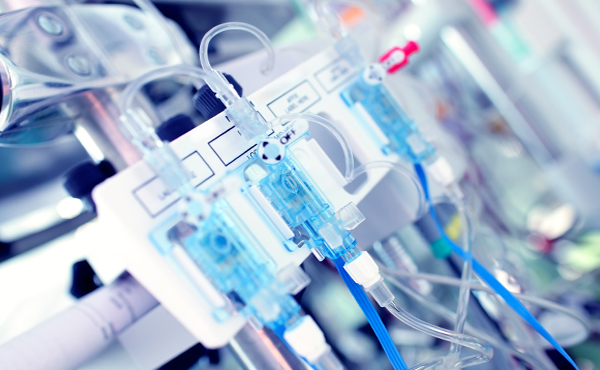Format: Pre-congress course, LIVES
Dates: October, 25-26, 2025
This ESICM Advanced Course in Haemodynamics will integrate and simulate at advanced level a management plan for the patient advanced monitoring: circulatory failure, fluid accumulation syndrome, preload responsiveness.
To do so, participants will get immersed in realistic clinical scenarios using different methodologies including Virtual Reality and practical simulations.
As a participant – you still have access to the virtual classroom on the ESICM ACADEMY
Faculty
Haemodynamics Pathway Director:
Xavier MONNET MD, PhD, Professor of Intensive Care, Medical Intensive Care Unit, Bicêtre Hospital, Paris-Saclay University Hospitals, Paris, France; Chair Cardiovascular Dynamics Section, ESICM
Course Directors Level 3:
- Michelle CHEW MD, PhD, Professor Anaesthesia and Intensive Care Medicine, Linköping University Hospital, Linköping, Sweden
- Xavier MONNET MD, PhD, Professor of Intensive Care, Medical Intensive Care Unit, Bicêtre Hospital, Paris-Saclay University Hospitals, Paris, France; Chair Cardiovascular Dynamics Section, ESICM
Endorsement: The Course is endorsed by the Cardiovascular Dynamics Section, ESICM.
Objectives
- To assess the predominant mechanism responsible for the shock state
- To evaluate appropriate investigations for the patient in shock with regard to
- Systemic and microcirculation
- Tissue oxygenation
- Fluid management and fluid resuscitation
- Appropriate hemodynamic monitoring
- Vasopressors, inotropes and adjunctive therapies
- To appraise indications and choice of hemodynamic monitoring
- To evaluate of the appropriate use of ultrasound in diagnosis, monitoring and ongoing management of shocked patients
- To integrate ultrasound findings with other clinical and haemodynamic findings
- To evaluate the appropriate use of advanced, invasive haemodynamic monitoring
- To integrate findings of advanced haemodynamic monitoring with clinical parameters and ultrasound
Programme Content
The programme will integrate and simulate the management plan for the patient with shock, with the following specific milestones:
- initial evaluation of haemodynamics in septic shock
- assessment of tissue oxygenation
- perform initial ultrasound assessment
- perform advanced haemodynamic monitoring
- evaluate the need for re-resuscitation
- evaluate and manage fluid overload
- evaluate heart-lung interactions during ARDS with echo
- evaluate and manage heart-lung interactions during ARDS in practice
- manage refractory septic shock
Fellowship
A total of 5 fellowships will be conducted in centres around Europe, giving fellows the opportunity to experience haemodynamic monitoring in real-life settings and learn directly from experts. Fellowship-related costs (accommodation and travel) up to 1000 EUR/fellow will be reimbursed by ESICM.
Eligibility for fellowships:
- Must be a member of the ESICM (so join us now if not already a member!)
- Must attend at least 2 levels of the Haemodynamics pathway within 1 year
- Fellowships will be awarded on basis of the application forms, attendance at the course, highest performance in the post-course evaluation, multidisciplinary and geographical equitable representation
Fellowship center and mentor:
Charité Universitätsmedizin Berlin, Berlin, Germany, Oliver HUNSICKER and the local team (March 2-6, 2026)
Note! Priority will be given to those participants who haven’t benefitted from a fellowship on this topic before or any other topic during the current year.
Requirements to join the course
Participants should have at least a basic understanding of, and preferably clinical experience with, invasive arterial pressure monitoring and derived variables, transpulmonary thermodilution, continuous cardiac output monitoring by pulse contour analysis, pulmonary artery catheterization and critical care ultrasound.
Target
- Intensivists who have completed Level 1 & 2
- Intensivists seeking a thorough approach in Haemodynamics
- Senior intensivists wanting an advanced level deep dive in specific topics of Haemodynamics
Accreditation
An application will be made to the UEMS EACCME® for CME accreditation of this event.
Social media: @ESICM #haemodynamics
Build your competencies

